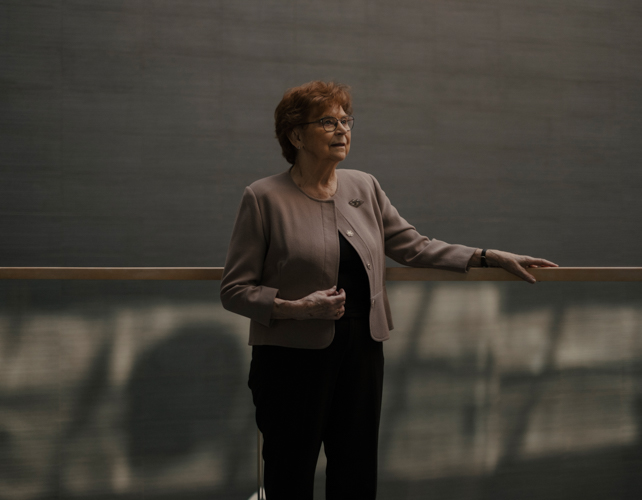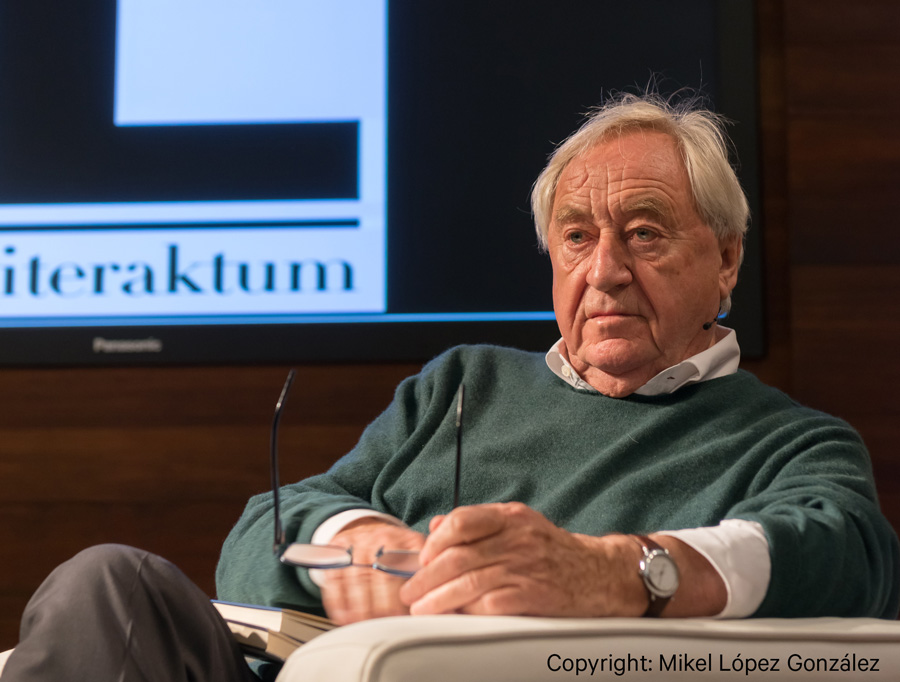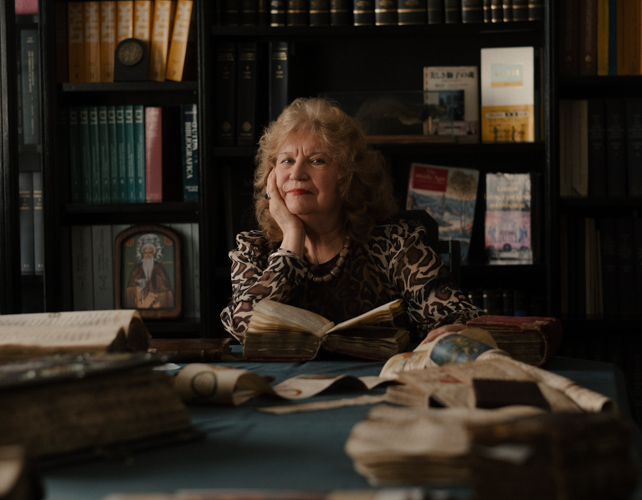Talvi Märja was born in 1935 and is one of the best-known adult educators in Estonia, and Professor Emeritus at Tallinn University. She was a member of the Estonian parliament from 1995 to 1999 as well as a member of the Tallinn City Council. For her dedicated work and contribution to public service, in 2003 she was awarded the national Order (“The Order of the White Star”). In her youth, she played top-level tennis and repeatedly won Estonian championships, before becoming a professional coach.
In her interview she tells Heleriin Jõesalu about surviving a German bomb falling onto her family’s garden, what she has learned from being a professional tennis player and later coach, as well as her passion for adult education and lifelong learning and the network of European ‘adult education’ colleagues and friends she built through her many travels.
Märja spoke with Heleriin Jõesalu. Heleriin Jõesalu studied at Tallinn University and earned an undergraduate degree in education specialising in andragogy and a master’s degree in social sciences and communication. Her work life to date has focused on education, and the field of adult education, in particular.
Interview Highlights
On childhood
My childhood, in fact, was quite unique. I would divide it into three periods. Since I was born in 1935, as you correctly noted, there were five years before the war, so the first period is before the war, then the war years, and the time after the war. They were all very different times. (…) I’ve survived three bombings, and not just bombings, but very close bombings.
On playing tennis
I was twelve when I started to play tennis and for the first time I had to go alone on the train from the countryside to Tallinn. I even had to change trains in Tamsalu, because from Tapa to Tamsalu there was this narrow-gauge railway. So I had to change to go to Tallinn to play tennis. So I would say that’s when my childhood ended and my life as an athlete began. […] I had a relatively short tennis career because I had a very serious injury when I was 22 and had to quit playing. […]
One really important thing about tennis is that it inspired me. When something needs to be gotten from somewhere and no one feels like they can be bothered to get it, I always go because I know, you couldn’t play tennis if you didn’t go get the ball. It’s really in the blood, just get up, go and get it. Essentially, tennis taught me a lot, and I wouldn’t say that the physical aspect was the most important. It taught us honesty because we usually played without a referee.
On the meaning of the word ‘home’
Above all, of course, for me, home is where I live, and where my loved ones live, and I think the most important thing was that my mother was there. […] And well, that’s why it’s pretty difficult for me to understand those who just move here and there, when I’ve never moved in my life. I’ve lived here all my life, it’s home. And I always want to return here. Things happened, for instance, there was the August Putsch on 20 August 1991 [an attempt by members of the Soviet Union’s government to take control of the country from the Soviet President and General Secretary Mikhail Gorbachev]. I had to fly from Riga to Copenhagen that day. The plane was cancelled, and everyone was told the borders were closed. We were told that the tanks were in Tallinn. The Danes said I had to stay in Copenhagen and that I would need a visa. But I said, ‘no way, let the tanks come, I want to go home’. That is what home is.
On her role in politics
My journey and role in politics started very humorously as well. In 1993, one day Ülo Vooglaid [Estonian sociologist, educator and member of the Estonian parliament for many years] came to the department, and he said “you know Talvi, the situation is that the Coalition Party needs women to run for city council”. So, as a dutiful person, I went to the Coalition Party office and introduced myself and some of them knew my face. They asked what I wanted. I said, I would like to run for election. (Laughs). It was such a funny moment, that someone crazy comes in and says she wants to run.
On the first time she travelled abroad
I was thirteen and a half when I first went to the Union-wide youth tennis tournament in Harkov, Ukraine. Today that would surely be considered going abroad. But at the time it did not seem so.
I travelled to the west, for the first time in 1957; it was a trip to London with an all-Union group to watch the Wimbledon Tennis Championship. It was my first real trip. Before the trip, we had to go to Moscow, first. We were taught how to eat with a knife and fork there. And then we boarded our flights. It was my first flight. It’s easy to get to London these days; you board a plane in Tallinn and land at any airport there. But we flew from Moscow to Helsinki, Helsinki to Amsterdam, Amsterdam to Paris and from Paris we flew to London. […] We finally arrived in London and the image of when we landed has remained before my eyes ever since. London was so beautiful and all the big roads and streets in the city that the plane had flown over had lanterns of all different colours; yellow, red, green, it was fabulous. Some images stay with you, and when I think of London, I see that picture right away. So that was my so-called first ‘real’ foreign trip. […]
Let’s just say that knowledge of Europe basically came to us from Finnish television, and on the other hand, maybe it came to me through sports. At the tennis competitions I met other nationalities, such as Finns, who came to Estonia. At that time, we couldn’t play outside of the Soviet Union yet. But in Moscow, where we had our competitions, players from other European countries came, but these were specific people from specific countries in specific competitions. But Europe as such, unfortunately not. […] So yes, Europe and European awareness, came much later. And I have to say, it came to me, not through sports, but through adult education.



